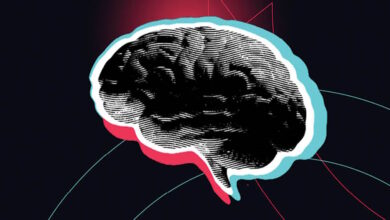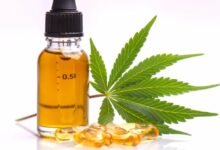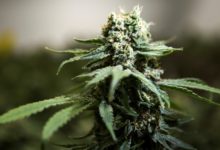Canábis medicinal – A desmistificação

É importante começar por explicar, de uma forma simples e clara, que a cannabis é uma planta herbácea, de origem asiática, popular no mundo inteiro – Durante a história, foi usada para as mais diversas finalidades: na religião, na indústria têxtil e na medicina. A cannabis tem substâncias presentes intituladas por canabinoides. De forma bem resumida, os canabinoides são componentes medicinais da planta e os mais conhecidos (e estudados também) são o canabidiol (CBD), popular pelo efeito anticonvulsivo, e o tetra-hidro-canabinol (THC), principal componente psicoativo da cannabis e responsável pelos efeitos de alívios de náuseas e dores, sensação de bem-estar, ataraxia, centralização em si próprio e eventual sensação de afastamento do mundo exterior.
Há um grande estigma associado à cannabis e hoje tentamos desmistificar algumas informações, já que há muitos estudos e casos que representam sucesso em relação à cannabis medicinal mais especificamente – há quem defenda e comprove uma melhora qualidade de vida e mais saúde, e a ciência tem sido uma boa aliada no processo de credibilização.
Esta droga medicinal pode ser, realmente, um braço direito no tratamento de várias patologias e sintomas. É uma importante (mas ainda não reconhecida pela maioria) ferramenta terapêutica na cura de doenças crónicas e sintomas associados. Há, como disse anteriormente, já bases científicas que sustentam evidência significativa que justifica o uso desta droga para tratar doenças como a dor crónica, o Alzheimer, Parkinson, epilepsia, fibromialgia, esclerose múltipla, autismo, problemas de ansiedade e pânico, dificuldades em dormir, entre várias outras. Existem, de facto, inúmeros relatos muito positivos de pacientes diagnosticados com doenças como as que acabei de referir.
Kevin Hall – CEO International Cannabis Solutions – esclarece-nos quais são as principais áreas da medicina que podem beneficiar com a inclusão da cannabis na sua terapia de cura:
Há até um crescente corpo de evidências que mostra como a cannabis pode substituir o álcool e os opioides, entre outros vícios, e com o perfil de baixo risco, é óbvio. A cannabis deve ser seriamente considerada para integrar quase qualquer parte do plano de tratamento. Lembre-se de que existem mais de 400 canabinoides identificados, incluindo CBD.”
A cannabis medicinal não é necessariamente algo que se tenha que fumar. Existem dezenas de possibilidades de consumo de medicamentos à base de cannabis: a administração pode ser feita por via oral (comprimidos, óleos e sprays) ou aplicação tópica (pomadas e cremes). No entanto, é importante realçar que deve ser um médico especialista a orientar a toma, de forma a que o uso seja adequado e indicado à condição a ser tratada.
Hiato na utilização da cannabis medicinal
Os registos de utilização da cannabis com fins médicos perdem-se no tempo. Há quem fale que o uso da cannabis remonta a mais de dois mil anos B.C.
Kevin Hall explica-nos a razão pela qual a cannabis, durante tantos anos e até há pouco tempo, não fazia parte de qualquer tratamento da chamada medicina tradicional:
“A principal razão pela qual houve um hiato temporário de acesso médico à cannabis nos últimos 80 anos, tem que ver com as grandes indústrias farmacêuticas, de álcool e outras grandes indústrias, incluindo o lobby bem sucedido que os políticos fizeram aquando da aplicação da lei, de forma a manter a referência a “loucura” bem viva. (…)Você ficaria surpresa se eu lhe dissesse que quase metade de todos os delitos / condenações relacionadas com drogas têm sido associados à cannabis. De que forma é que a aplicação da lei continuaria a obter os seus grandes orçamentos se a cannabis fosse legalizada?”
O medo da dependência
Há ainda um receio bem vincado por parte de alguns setores da população relativamente à eventual dependência, que pode surgir após um tratamento à base de cannabis. Será que este é um medo com fundamento? Kevin Hall explica:
“Existe um termo chamado Transtorno por Uso de Cannabis (Cannabis Use Disorder), que é como qualquer outro vício; em que, apesar das consequências do seu bom ou mau uso, ainda continuam associados a um padrão de comportamentos autodestrutivos. Dependência química ou pessoas com problemas de adição na população é de aproximadamente 9% e o transtorno por uso de cannabis regista mais ou menos a mesma percentagem, de modo que, estatisticamente, é insignificante. Além disso, se olhar para o perfil de risco, açúcar e cafeína têm uma classificação mais elevada do que a cannabis. O que estou a dizer é que quando comparamos a cannabis com qualquer produto farmacêutico, incluindo nabilona e sativex (que são produtos farmacêuticos de cannabis) o produto orgânico de cannabis bem cultivado terá a menor quantidade de efeitos colaterais ou riscos envolvidos.
As pessoas não percebem isso, mas a planta de cannabis é provavelmente uma das drogas / plantas mais estudadas do mundo e ainda há quem venha dizer que não há evidências suficientes [da sua eficácia]… (risos) Basta ler alguns estudos imparciais de cientistas e está tudo lá, têm é que escolher ler.”
Curiosidade
A maior plantação europeia de cannabis medicinal fica em Portugal. Atualmente, em Aljustrel, existem cerca de 45 mil pés da planta espalhados ao longo de nove hectares. A plantação faz parte de um projeto da empresa RPK BioPharma, subsidiária portuguesa do grupo Holigen – propriedade da sociedade canadiana Flowr Corporation.
Em Portugal, é de relevo informar que o Infarmed aprovou, dia 1 de fevereiro de 2021, a primeira substância à base de cannabis para fins medicinais. O produto da Tilray Portugal, baseada em Cantanhede, tem as condições de segurança e qualidade necessárias para poder ser comercializado.
“Cannabis should be seriously considered” – Kevin Hall
Milénio Stadium: Cannabis use for medical purposes has been used since the beginning of time. Some say that it’s use dates back to more than 2 thousand years BC. Why has cannabis not been part of any of so-called traditional medicine treatments until recently?

Kevin Hall: The main reason why there was a temporary hiatus of medical access to cannabis for the last 80 years is big pharma, alcohol, and other related big industries including law enforcement have successfully lobbied politicians to keep the ‘refer madness’ alive and well. Some might say why or how law enforcement. Would you be surprised if I told you that almost half of all drug related offences/convictions have been related to cannabis. How would law enforcement continue to get their big budgets with cannabis being legal?
Technically speaking the discovery of THC the cannabinoid molecular structure responsible for affecting your brain and the ‘high’ was discovered in 1964 by an Israeli scientist names Dr. Raphael Mechoulam and still continues his research to this day.
Technically speaking Canada has had ‘legal medical cannabis since 1997 based on a landmark Ontario Supreme Court Ruling that stated marijuana laws in Canada are unconstitutional for medical patients. Judge Patrick Sheppard ruled that certain sections of the Controlled Drug and Substances Act are unconstitutional in cases where marijuana is used for medically approved purposes.
Sheppard stayed charges of cultivation and possession of marijuana against 42-year-old Terry Parker, an epileptic who was charged in July 1996. But Sheppard convicted Parker of trafficking marijuana. The judge ordered police to return 71 pot plants seized from Parker, who argued he needs marijuana to control epileptic seizures. Sheppard said Parker’s illness is best controlled with a combination of prescribed medication and smoking marijuana. Depriving Parker of marijuana is unconstitutional, he ruled.
Extensions should be made to the law for people who use marijuana for medically approved purposes he said. The Crown wants the ruling to apply to Parker alone.
Parker won a landmark ruling 10 years ago when he was acquitted of a possession charge. The acquittal was upheld by the Ontario Court of Appeal a year later.
Judge Patrick Sheppard
“If liberty is the right a person has under the Charter, then a person must possess an autonomy to make decisions of personal importance. Good health is of personal importance. (It) is fundamental to life and the security of each person.”
“Serious decisions regarding the management of illness and medical disability are, for most Canadians, made following consultation with a doctor. Canada has an elaborate and costly health-care system to ensure this opportunity is available to all Canadians. This has been the lengthy course followed by Parker. The negative side effects or “harms’’ in the use of any medication is a significant part of that medical decision-making process between a doctor and patient. Parker has made his decision in the management of his epilepsy. It has apparently met with some success. It has been known and supported by some of his doctors over the years.’’
“The control of his epileptic seizures is of critical personal importance to him and in the interest of the greater community of which he is a part, the same community who pay his health-care costs. I find he has established that this control is best achieved through a combination of prescribed medications and the smoking of marijuana. For (him) to be deprived of his smokable marijuana is to be deprived of something of fundamental personal importance.”
“It is accepted that beverage alcohol and tobacco, although both potentially individually addictive and carrying with their use a huge taxpayers’ cost, are tolerated in our society (although regulated) as part of the cultural tradition of the majority of our community. The same cannot be said of marijuana and therefore it is argued it ought to be prohibited. This argument is to ignore that for many prohibited drugs, use is permitted for a controlled therapeutic medical purpose – morphine and heroin being such examples…”
(…)
“This court concludes therefore, the appropriate remedy on this application is one of reading in an exemption. Parker will be granted immediate protection under the Charter of a stay of proceeding.”
Canada has had almost a dozen Supreme Court Decisions that have follow suit since the Parker case which is the main reason the advancement of medical cannabis has taken place and evidence-based healthcare has systematically debunked ‘refer madness’ over and over again since
MS: Under what circumstances can cannabis treatment be beneficial to the patient?
KH: Cannabis has the strongest evidence to support and most commonly used for chronic pain and related illnesses, as well as the following:
- Anxiety
- PTSD
- Parkinson’s
- Epilepsy
- Sleep disorders
- Immune disorders
- Cancer symptoms, like appetite, nausea, etc
- Crohns Disease
- Addiction Therapy
- Multiple Sclerosis
- Neurodegenerative Disease
- Glaucoma
- Arthritus
MS: What are the main areas of medicine that can benefit from the inclusion of cannabis in their therapy?
KH: I’m a firm believer that all cannabis is medical – even rest and relaxation is considered medical. Some would saw the ‘high’ allows for that.
There even is a growing body of evidence that shows how cannabis can replace alcohol and opioids among other addictions and with the low risk profile it’s a no brainer.
Cannabis should be seriously considered for almost any aliment for part of the treatment plan. Keep in mind there are over 400 identified cannabinoids including CBD.
MS: There is also a sense of fear by some sectors of the population regarding the possible addiction that can occur after cannabis treatment. Is there any validity to this fear?
KH: There is a term called Cannabis Use Disorder which is like any other addiction; whereby despite consequence of ones use or misuse still continue a pattern of self-destructive behaviours. Chemical dependency or addiction personalities in the population is approximately 9% and Cannabis use disorder make up for about the same so statistically insignificant.
Also, if you look at the risk profile, sugar, caffeine, rank higher than cannabis.
What I am saying is when you compare cannabis to any pharma product including nabilone and sativex which are cannabis pharma products the organic well cultivated cannabis product will have the least amount of side effects or risks involved.
People don’t realize this but the cannabis plant is probably one of the most researched drug/plant on the planet and they say there isn’t enough evidence.. (laughs) all it takes it to read a few unbiased peer review research studies and it’s all there if you chose to read.
Catarina Balça/MS








Redes Sociais - Comentários